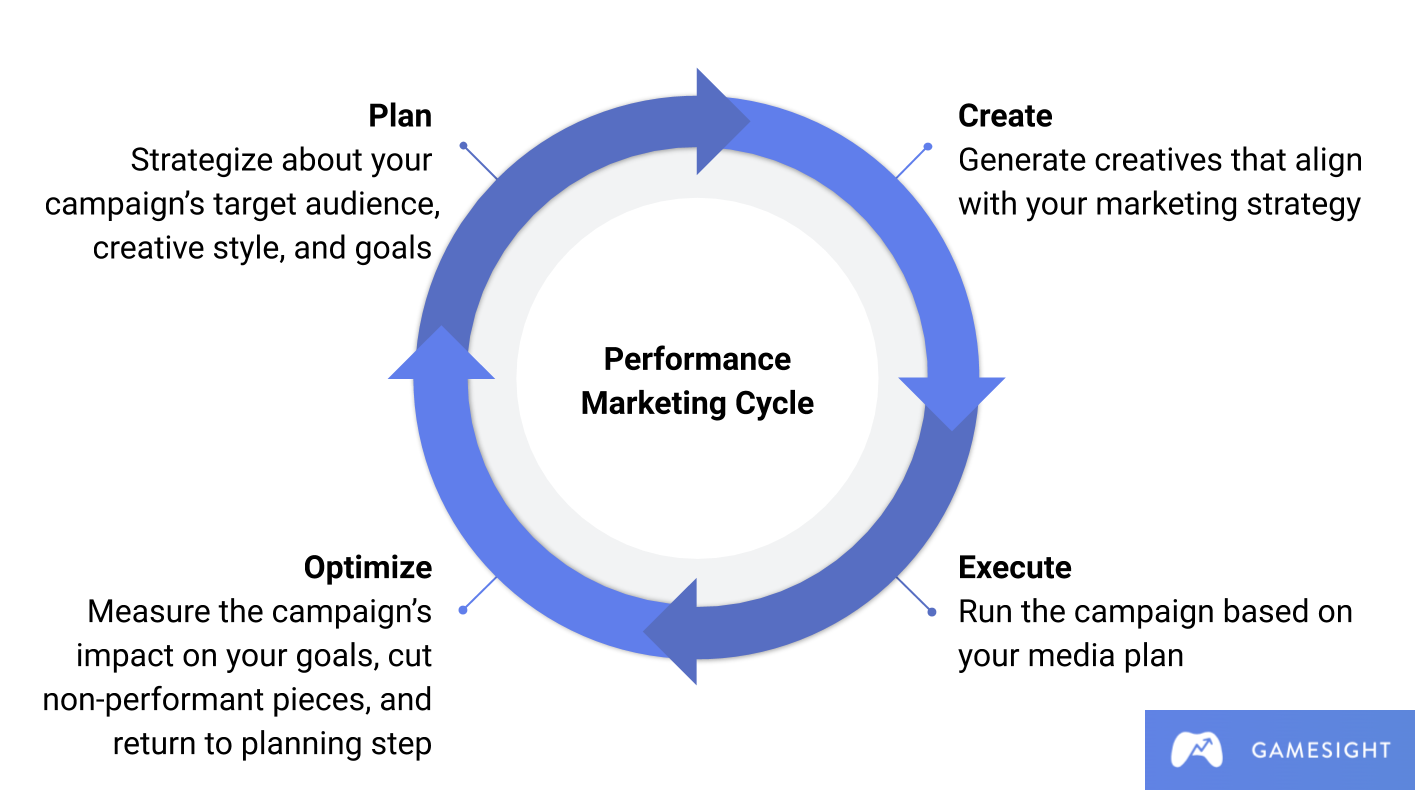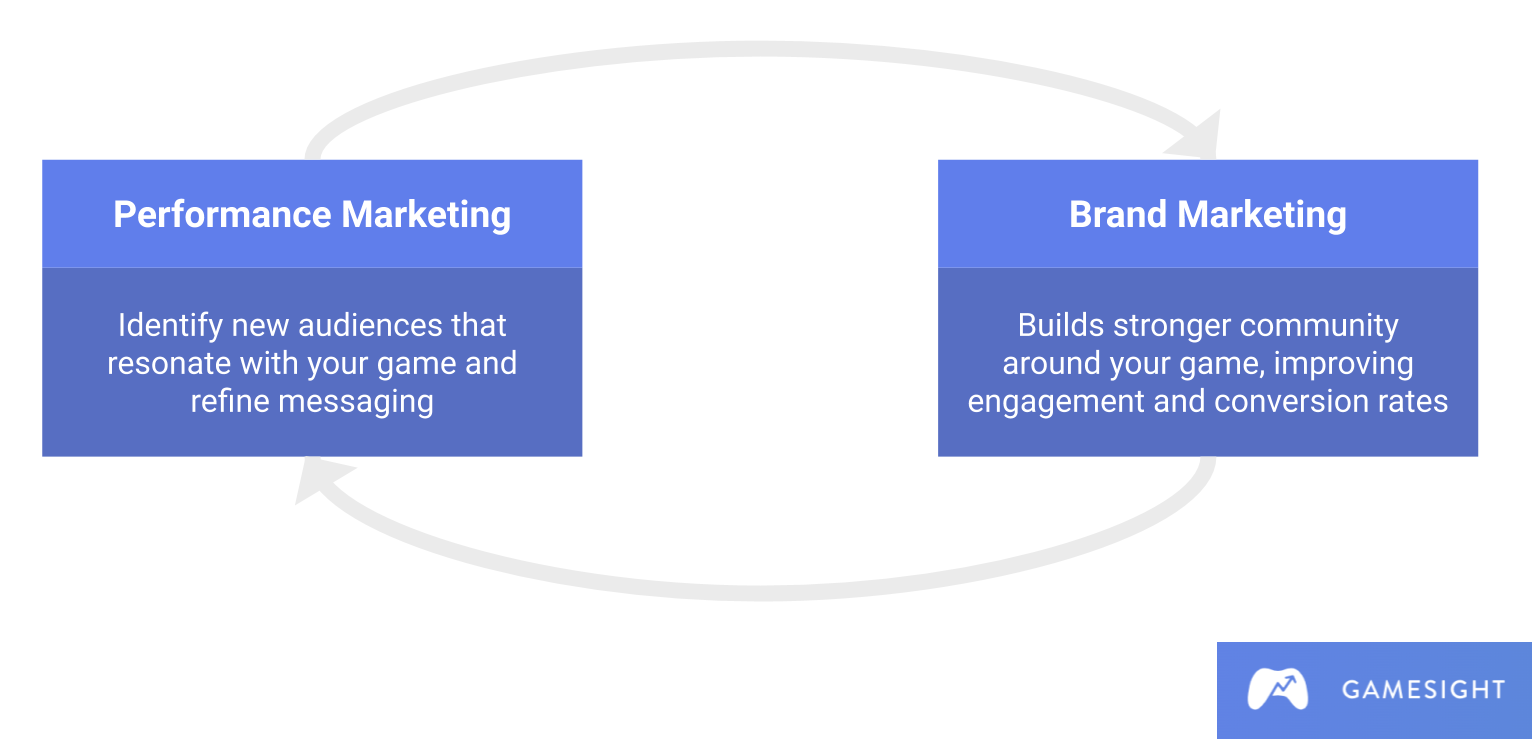Performance marketing primer for PC and console games
Are you interested in building a performance marketing strategy for your game? This primer will help you explore applications of performance marketing from the perspective of a PC or console game marketer.

Performance marketing is not a specific advertising format or tactic. Rather, performance marketing is a framework for achieving systematic product growth. - Eric Seufert, Author of Freemium Economics
What is performance marketing?
Simply put, performance marketing is marketing powered by data and run to achieve a specific result. A performance marketing campaign is one in which the marketer plans their goals, executes campaigns, measures results, and optimizes based on the data.

In this post, we will explore applications of performance marketing from the perspective of a PC or console game marketer. Performance marketing is central to mobile games marketing, where it has been ingrained in the industry from the start. It is only beginning to be adopted for PC and console games and is a core element of Gamesight's mission and products.
Why should I care?
There is an old ad agency adage that says, "50% of your marketing budget is responsible for 90% of the performance, the problem is you just don't know which 50%." Performance marketing helps solve this problem and enables you to cut down on that 50% of underperforming media.
Investing in performance marketing means investing in data. Performance marketing puts the power of data in the hands of your team members, enabling them to choose the marketing channels that work best while cutting out those that don't.
Shifting to a performance marketing mindset can take you from launching your game with a fixed budget and hoping for success, to having an ongoing and iterative marketing strategy with increasingly predictable performance, ensuring you meet your goals.
Why isn't all marketing "performance marketing?"
Because it is hard! If we could easily measure the full impact of every customer interaction, everyone would do it. Unfortunately, that's not possible today. Data is siloed - your customers interact with your game across dozens of online platforms, on social media, at events, via influencers, and more. Getting insight into all of those touchpoints is a huge task - and in some cases an impossible one.
The good news is that with the prevalence of digital media, the insights you can get about your marketing efforts' impact are better than ever before. While the data will never be perfect, modern measurement techniques can ensure that you have the insights you need to make data-driven marketing decisions for your game.
Measure Everything.
The first step to a performance marketing strategy is collecting data on your game. Strive to gather data on the full customer journey - from awareness all the way through to the final boss. Think about how to measure these touchpoints:
- Awareness - Where the player discovers your game. This could be through channels like Facebook, Google, Twitch, Youtube, Display Networks, etc. Look to measure values like impressions, clicks, engagement, and cost from these platforms.
- Interest - Where the player goes to learn more. Often this is your marketing site, Steam or other distribution platforms, Reddit, community sites, review sites, etc. Metrics to watch here can be click through rate, community engagement and before release - pre-orders, wish lists, and newsletter signups.
- Conversion - Where the player buys/installs your game. Think Steam, Xbox Store, Playstation Store, Epic Games Store, etc. This is where the data starts to really come together. Here you should be focusing on attributing installs to various user flows. Focus on measuring conversion volumes and rates by channel.
- Engagement - How the player interacts with your game post-install. Most engagement occurs in your game but looking at community engagement can also be helpful. Metrics here include retention, in-game purchases, lifetime value (LTV), return on ad spend (ROAS), content creation, etc.
You will always end up with "rough edges" in your data. Remember that measurement is a tool to help you compare the impact of your marketing efforts. Not everything can be directly measured - you will often need to act on imperfect data - so don't let perfect be the enemy of good.
What about Brand marketing?
Brand marketing is often placed at odds with performance marketing, on two different ends of some marketing spectrum, but in reality everything you do as a part of your performance marketing plan is also part of your brand. Each time you run a campaign you need to keep your brand in mind.
A sustainable long-term performance marketing strategy isn't about tricking players or spending your community's goodwill. Your performance marketing should reinforce your brand.

The data from your performance campaigns will help you refine and improve your brand marketing. And as you grow the strength of your brand efforts it will measurably improve the impact of your performance campaigns.
Where do Influencers fit into all of this?
Influencer marketing is consistently one of the most effective channels for PC and console games and can be measured as part of your performance marketing strategy. We've seen this pattern at Gamesight across hundreds of games. But measuring the true impact of your influencer strategy can be incredibly difficult. Direct attribution tends to only capture a small portion of the impact of your campaign and building lift models can be very complicated.
Setting goals and clearly defining your objectives upfront is the key to success. Consider metrics like viewer hours, cost per view, engagement, and attributed conversions. A carefully planned and executed influencer campaign can drive both your performance goals and be great for your community's growth.
How do I get started?
Performance marketing is a deep topic that at times can be very technical. The role of marketing has changed and now includes many new skills in response. Marketing teams are now asked to be experts in data analysis, systems integrations, and business strategist.
Performance marketing is a mindset. Implementing measurement isn't a one-time task but an ongoing practice. There are thousands of potential signals to sift through and part of the marketer's job is to hone in on the most important ones.
We are compiling a list of additional resources to help you get started with performance marketing. In the meantime if there are any topics you'd love to see covered feel free contact us using our live chat!
About us
At Gamesight, we use data to help games find commercial success. If you are looking for help getting your game's performance or influencer running and want to talk about this article, identifying the right influencers, or measuring your advertising needs, please reach out on our website!

